‘A.R. Engers’ the start sheets used to say, ‘Alfred Robert’, or plain old Alf Engers, but to us he was ‘Alf’ or even ‘The King.’
Time trials weren’t boring affairs when Alf was on the throne.
He was a man on a mission; to take the British 25 mile record through the 30 miles per hour barrier – and more than 30 years after he broke the barrier there are still not many riders who can claim a ’49’ or faster.
And when Alf did it there were no skinsuits, tri-bars, discs, aero crash hats or Cervélos.
On the way to that mythical first 49 he broke the record three times and claimed the 25 title six times.
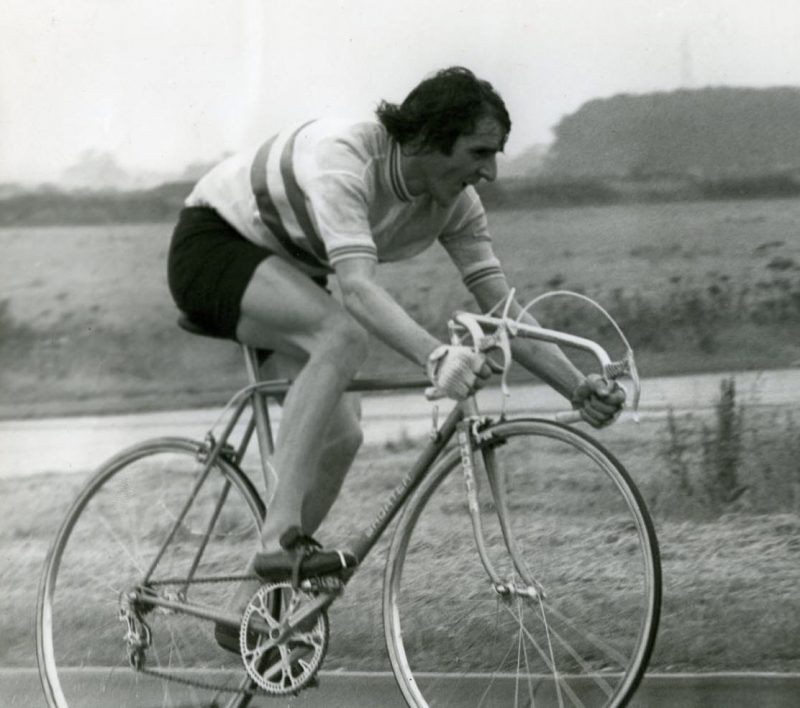
But as well as the glory there was the heart break of punctures when on stellar rides way inside the 50 minute barrier, suspensions and the constant sniping of the ‘grey men’ – officials who hated this colourful man who brightened up a sport which was still steeped in the ‘black alpaca’ mentality.
VeloVeritas caught up with A.R. Engers to ‘talk 25 records.’
You were a child in war time London, Alf?
“My family was bombed out in Barnett during the war.
“We were in the air raid shelter and we could hear a V1 ‘doodle bug’ over head, there was an enormous ‘thump’ and everything came down on top of us, my dad had to dig us out.
“When we got out there was rubble everywhere and the house was on fire.”
How did you get into cycling?
“I was originally a runner but I was hit by a car and damaged my knee – I realised that I wasn’t going to do a sub four minute mile after that.
“As well as running I did a bit of swimming and cycling – I used to watch the massed starts at Finsbury Park.
“But the thing that began to grab my imagination was the thought of riding 25 miles at 30 miles per hour.
“Cyril Cartwright first broke the hour with 59:18 in 1944 but ‘straight’ out records were getting towards 30 mph and I though; ‘why can’t you do that out and home?’
“It took me two years to get into racing after my injury and at that time all of the fast TT guys came from the track and rode fixed.
“But a new generation of TT guys was on the way, like Breedon and Dungworth who rode big gears and the idea of the 30 mph 25 began to obsess me.”
But you weren’t just a tester – you were British junior road race champion.
“It was held on a triangular course with some sharp 90 degree corners, at Nottingham.
“There were four of us in the break including a guy called Jim George, he was hot favourite – he was unbeaten in seven races.
“On the last lap I heard his parents shout; ‘you’ve got it Jim!’
“But I was thinking; ‘we’ll need to see about that!'”
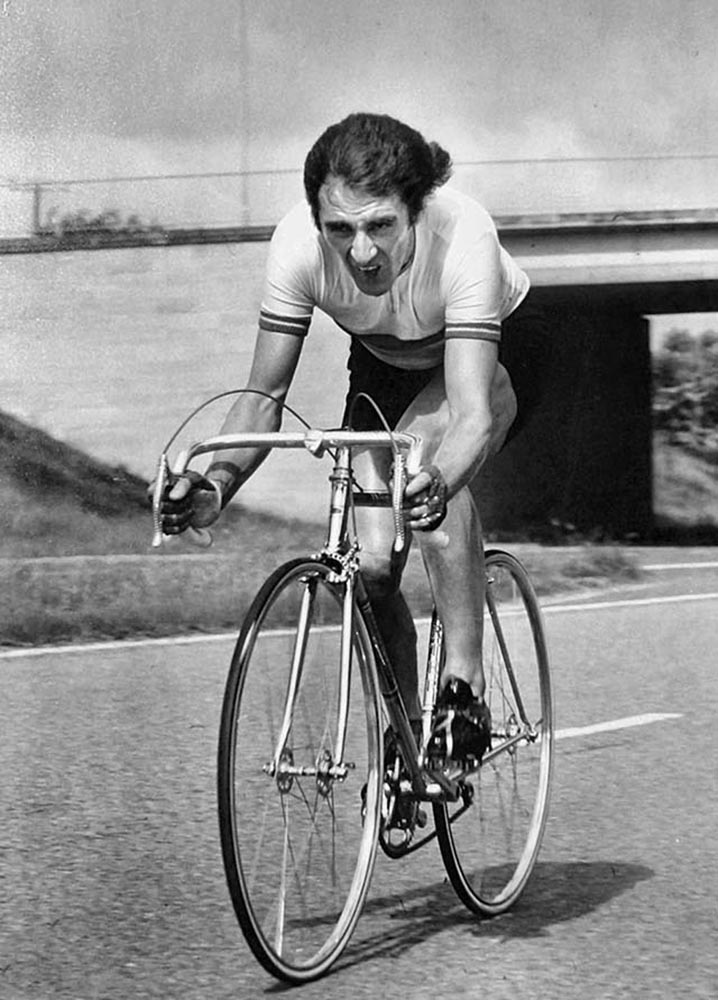
And kilometre champion?
“I was in the Polytechnic CC at the time and we had won the team pursuit championship, twice.
“My team mate, Sean Bannister used to get up my nose – his dad had money and Sean would arrive at a track meet with six pairs of wheels – when I’d said to him; ‘I’m going to enter the kilometre’ he replied; ‘is that a good idea? you’ll be wasting your time.’
“That was all I needed!”
You also posted the fastest ever pursuit in Britain at the time?
“Yes but I was working six days each week and I couldn’t get the time off to go to the track squad training weekends – I remember getting dragged in for taking time off work.”
The start of your big comeback was 1968?
“I broke the record in 1959 with 55:11 and was third in the 25 champs that year as a 19 year-old.
“I was away from the sport through the 60’s because I’d ridden as an ‘Independent’ and the RTTC wouldn’t reinstate me until ’68.
“In 1968 I was joint second in the 25 champs behind Ray Ward but I won it in ’69 and took the record twice – 51:59 and 51:00. [Alf won the championship six times: ’69, ’72, ’73, ’74, ’75 and ’76].”
But what about the ‘disappearances’ to go fishing?
“My father was a fisherman and I was involved in carp fishing from an young age.
“Early on I developed a love of the great outdoors and the quietness that’s goes with fishing.
“I still like the countryside – I’ve walked the West Highland way.
“Sometimes I’d just get fed up with what I was doing and get the rods out.
“I had a lot of people on my back – when I was with the Woolwich CC they rode Intercycle bikes and the guy behind that wanted results.”
Alan Shorter was your mentor and the name on your frame for a lot of your career.
“He’s still alive, into his 90’s now – he was my inspiration; when I was in the Barnett CC, he shepherded me through the early stages of my career.”
Who coached you?
“Frank Westell, he lives eight miles from me.
“He wasn’t one of those cranky trainers who cling on to old ideas – it was him who steered me towards speed.”
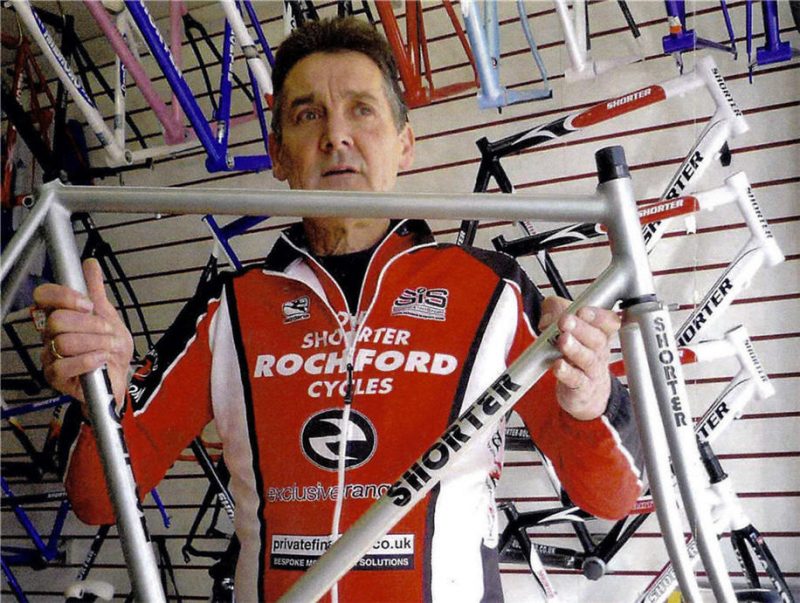
Alan Rochford was on your ‘team’ too?
“He’s my life long friend, he retired from racing to build a bike business – which did very successfully.
“He understood me and knew my temperament – if you have fast twitch muscles then that’s linked to your mental state.
“I never thought about suicide but have been on the edge of depression.
“Look at Darryl Webster and Graeme Obree, very talented but prone to depression.”
Tell us about your mental preparation.
“That’s 100% essential.
“I read that the Rolling Stones, before they go on stage can’t have any hassle, they have to be totally focussed on what they’re about to do.
“I had to have silence before a race to get my mind clear for the job ahead.
“Sometimes the last words I heard would go round and round my head.”
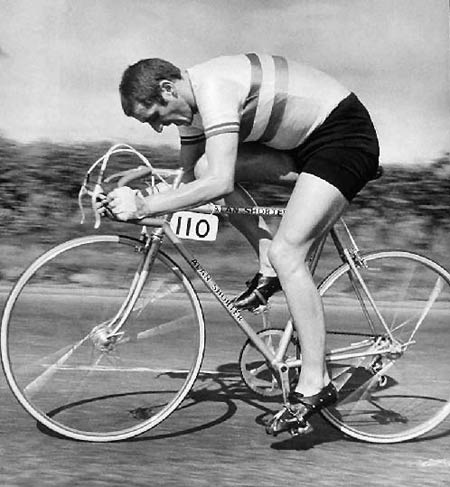
The RTTC?
“Everything I did I had an RTTC guy watching me.
“The last big suspension I had wasn’t right. In 1976 I’d been training on the Q25/3 and knew it well – the night in question I knew it was ‘the’ night.
“On Swansconbe cutting I had to move out to avoid debris that had come off a builder’s lorry which had overturned. The chairman of the Kent RTTC saw me do it and put his slant on it.
“Then a police car came alongside me and the forced me off the road.
“On the chart it was a 46 that night or at worst a 47.
“The RTTC used to brief their officials to keep a ‘special watch’ for me.”
And what do you do now?
“I’m a baker in a 24 hour bagel shop in the East End – it’s open 24/7, 365 days each year.”
Regrets?
“No, I did what I set out to do, I took the record under 50 minutes and realised my dream.”
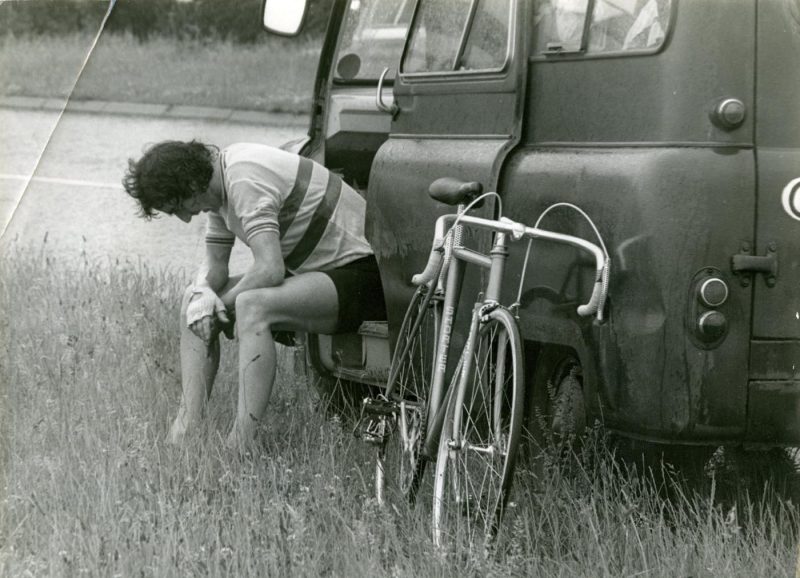
In Part II we’ll talk with Alf about that special day when the 25 mile comp record began with “4” for the first time.
Images © Cycling Weekly, unless otherwise stated.



